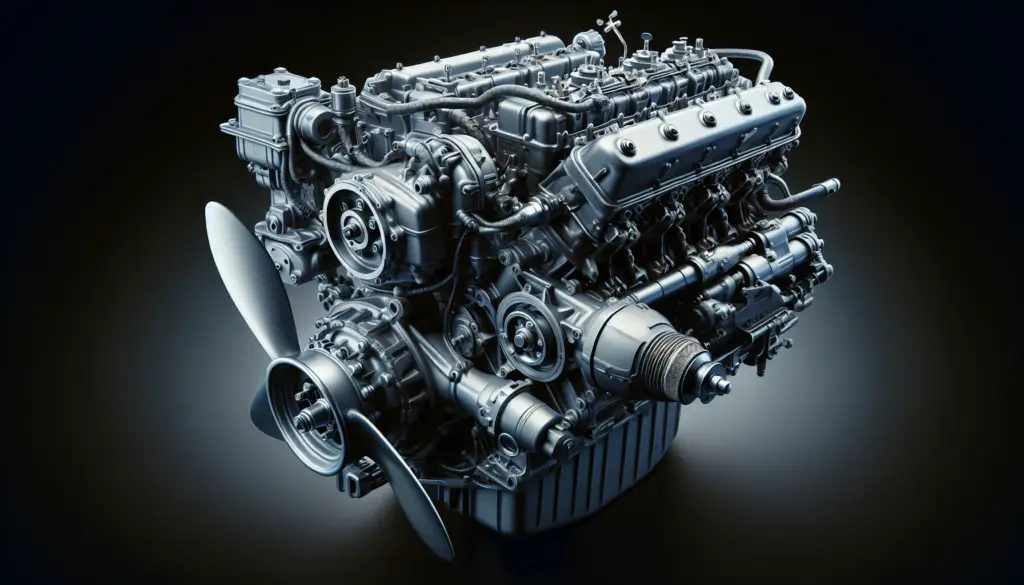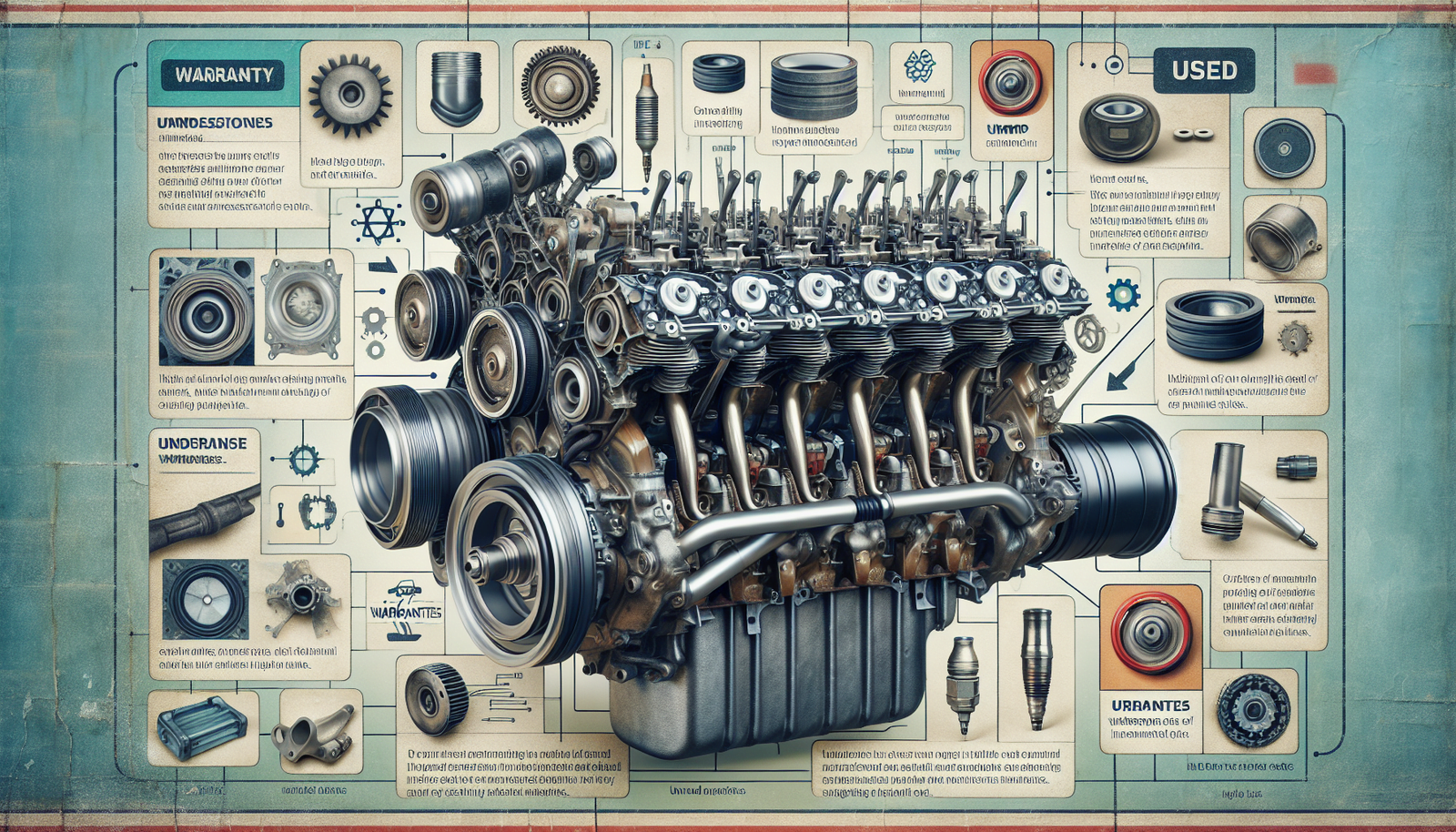Are you on the hunt for a boat engine that won’t break the bank? Setting your sights on used boat engines could be the perfect solution. In this article, “Buying Used Boat Engines: What You Need To Know”, you’ll get the full lowdown on how you can make the most of these second-hand marvels. From tips on checking service records to key factors to watch out for before making that final purchase, you’ll soon be well-equipped with all the essential knowledge you need to make an informed decision. Happy sailing!

Understanding Your Boat Engine Needs
Before diving into boat engines’ details, the first thing you need to do is understand your specific needs. Boat engines aren’t a one-size-fits-all, different types of boats will necessitate various kinds of engines.
Types of Boat Engines
There are typically four types of boat engines: outboard, inboard, stern drive, and jet propulsion. Each engine type is specifically designed for different needs, so it’s essential that you identify the one that suits your boating life. Having a clear idea of what you plan to do with your boat will help you make a wise decision in this aspect.
Power Needs for Your Boat
Key to understanding your boat engine needs is to know your power requirements. This greatly depends on the size and weight of your boat. For instance, a lightweight, a small vessel might only need a small outboard engine. However, larger boats—like yachts—often require powerful inboard engines.
Your Intentions for Using the Boat
Are you using your boat for fishing? Maybe you intend to cruise or race with it? Your plans for utilizing the boat will significantly affect the kind of engine you need. For example, if you plan to use your boat for fishing, a quieter engine might be necessary not to scare away fish.
Evaluating the Engine’s Condition
Once you understand your needs, the next step is to evaluate the condition of the engine. An engine can appear to be in excellent condition, but closer inspection may reveal otherwise.
Checking for Corrosion and Rust
Corrosion and rust are the ultimate enemies of any engine. Always check for signs of corrosion and rust in the entire engine system. A healthy engine should be free from these destructive elements.
Testing the Compression
Compression testing provides valuable information about the condition of the engine. It includes the state of the pistons, the valves, and the rings. A failed compression test implies that the engine may need significant repairs.
Checking for Oil Leaks
Oil leaks can translate to severe engine issues. Always ensure to check if the engine exhibits any oil leak signs. Sticky black residues around the engine could be a clear indication of oil leaks.
Proof of Regular Maintenance
Lastly, always ask the seller for maintenance records. Regular maintenance is a clear indicator of how well the engine was treated.
Reviewing the Engine’s History
Besides evaluating the engine’s condition, you also want to know about its history. The engine’s history can teach you a great deal about its current condition and future performance.
Service History
Knowing how regularly the engine was serviced can give you insight into its overall health. Be sure to ask the seller for all service records to assess how well-maintained the engine is.
Previous Repairs and Alterations
Was the engine repaired or altered in any way? If yes, understanding the nature and extent of these alterations could help you predict the future performance and maintenance needs of the engine.
Hours of Operation and Usage Patterns
Inquire about the hours of operation and how the engine was previously used. Engines used for racing can often have more wear and tear than those used for cruising.

Conducting a Thorough Inspection
After reviewing the engine’s history and evaluating its condition, the next crucial step is to inspect it thoroughly.
Hiring a Professional for Inspection
Even if you have some technical knowledge, it might still be worth hiring a professional. They have the expertise to detect problems that you could easily overlook.
Inspecting the Propeller
An essential part of the inspection is the propeller examination. Check for any dents or cracks and confirm that it’s tightly secured in place.
Checking the Electrical Systems
Electrical connections and cables should be rust-free and tightly secured. Any signs of loose connections could lead to serious engine issues.
Performing a Sea-Trial
After conducting a thorough inspection, it’s imperative to perform a sea-trial.
Importance of a Sea-Trial
A sea-trial is not just about taking the boat for a spin. It’s your chance to learn more about how the engine works in real-world conditions.
Assessing Engine Performance during Sea-Trial
During the sea trial, monitor how the engine starts and accelerates. Check if it has any starting problems or power losses at specific speed ranges.
Checking Engine Sound and Vibration during Sea-Trial
Listen to the engine’s sound—any unusual noise could signify a problem. Additionally, feel the vibrations. Unusual vibration levels could be a sign of a malfunctioning engine.
Understanding Warranties and Guarantees
Warranties and guarantees are like safety nets when buying a used boat engine.
Warranties Provided by the Seller
The seller may provide warranties covering potential issues within a specified period. This can offer peace of mind knowing you won’t have to bear unforeseen repair costs.
Availability of Manufacturer’s Guarantee
In some cases, the manufacturer’s guarantee might still be valid. This guarantee can be an added advantage, as it could handle any significant repairs or replacements.
Negotiating the Price
With all the needed information at your disposal, you can now negotiate the price.
Price Comparison with New Engines
Compare the engine’s price with similar brand-new models. If the cost difference is negligible, buying a new one might make more sense.
Considering Repair and Maintenance Costs
Don’t forget to include potential repair and maintenance costs into the equation. High future maintenance costs could make a seemingly cheap engine expensive.
Understanding the Depreciation Value
Boat engines, like any mechanical devices, depreciate over time. Make sure to calculate the depreciation value during your price negotiation.
Assessing Potential Repair and Maintenance Costs
Before finalizing your purchase, it’s vital to ponder potential repair and maintenance costs.
Availability of Spare Parts
Ensure that spare parts for the specific engine type are readily available. If they are not, ongoing maintenance and repair could be problematic.
Cost Analysis for Routine Maintenance
Perform a cost analysis of what routine maintenance might be. These ongoing costs play a significant role in the engine’s overall lifetime cost.
Understanding the Cost of Major Repairs
Inquiring about major repairs’ costs can help you prepare for any unexpected engine failure.
Ensuring Legal Compliance
It’s requisite to ensure your engine is compliant with all necessary laws and regulations.
Understanding Import and Export Laws
If you are importing or exporting the engine, you need to be conversant with all import and export laws related to it.
Ensuring Engine Meets Emissions Standards
Most importantly, your engine needs to meet all emission standards set by the environmental and marine authorities.
Finalizing the Sale
Congratulations! You’ve made it this far. Now it’s time to finalize the sale.
Securing Proper Documentation
Ensure to get all the official documents concerning the engine’s ownership, maintenance history, and warranties.
Processing of Payment
Agree with the seller on the best method to process payment. Depending on the price, you might have to draft a purchase agreement.
Planning for Transport and Installation
Lastly, plan for the engine’s transportation and installation. It’s crucial to ensure the engine is carefully transported and correctly installed to avoid damaging your newly purchased engine.
In conclusion, buying a used boat engine is an intensive task that requires careful considerations on several fronts. But, with all these factors thoroughly checked, you can confidently make a purchase that suits your needs and offers excellent value for money.

